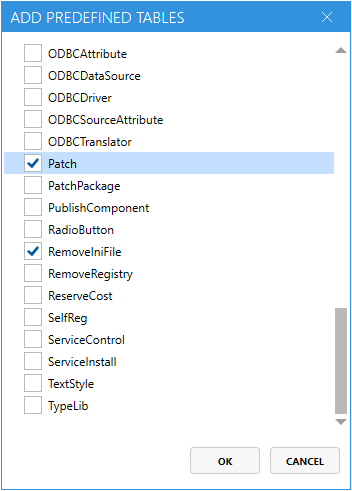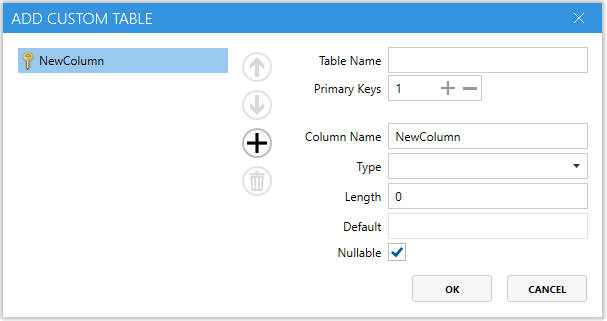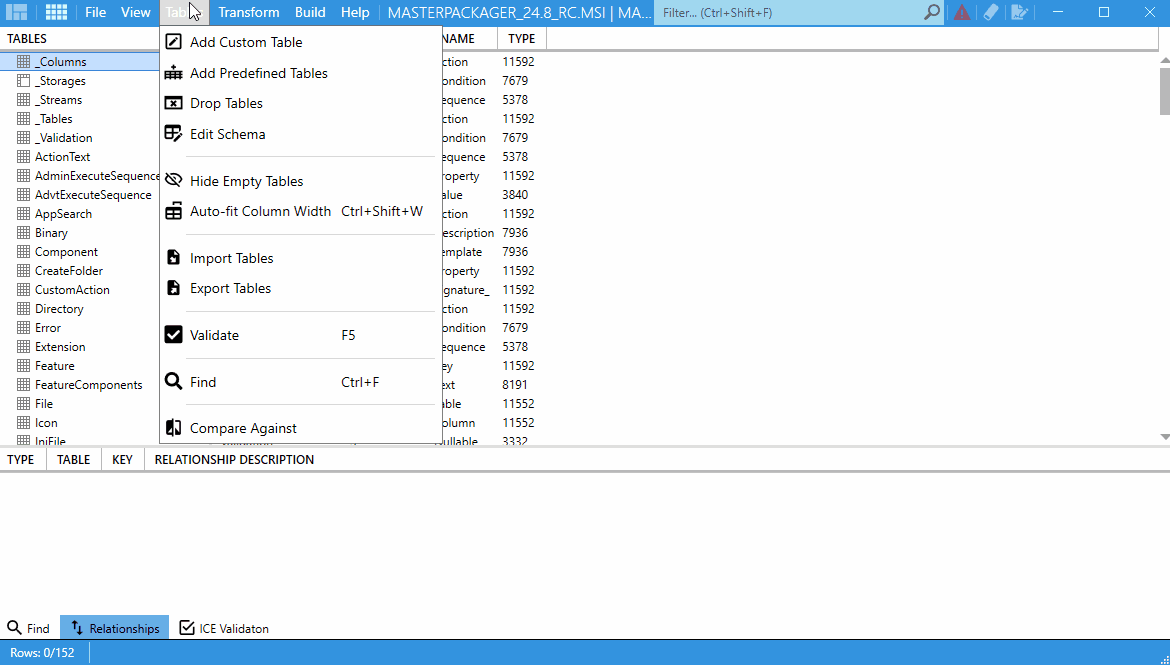Add Predefined and Custom Tables
Master Packager allows you to add both predefined as well as completely custom tables to your MSI or MST package. This gives you flexibility for handling specialized scenarios or integrating with applications that require specific tables.
Predefined Tables
Master Packager supports:
-
Standard MSI tables
Tables defined by the Windows Installer schema and present in most MSIs. -
Non-standard (predefined) tables
Tables used by specific Microsoft products or advanced packaging scenarios, such as:- Office installations
- Visual Studio setups

Sometimes predefined MSI tables aren’t included in a package by default. You may need to add them manually. For example, the RemoveFile table if your package requires file deletion during install or uninstall.
Custom Tables
Master Packager allows you to define entirely new tables tailored to your packaging needs. With custom tables, you can:
- Add new data structures for advanced installation logic.
- Track custom properties or deployment-specific data.
- Support proprietary application integrations requiring extra data storage.
When adding a custom table, you can specify:
- Column names
- Data types
- Column lengths
- Default values
- Nullable settings
- Primary key columns
When to Use It?
Use this feature when:
- Your package needs predefined tables not present by default.
- Integrating with applications that require specific tables for configuration or operation.
- Developing advanced installations that rely on custom data.
- Extending MSI capabilities beyond the standard schema.
How to Add Tables
- Open your MSI or MST file with Master Packager.
- Go to the Table Editor.
- Click Add New Table.
- Choose one of:
- Predefined Table – select from a list of known tables like RemoveFile, DuplicateFile, etc.
- Custom Table – define your own table schema from scratch.
- For custom tables, enter:
- Table name
- Column definitions
- Primary key columns
- Default values as needed
Tip: Always ensure any added predefined tables are correctly populated with data. Empty tables sometimes cause validation warnings in MSI tools.


